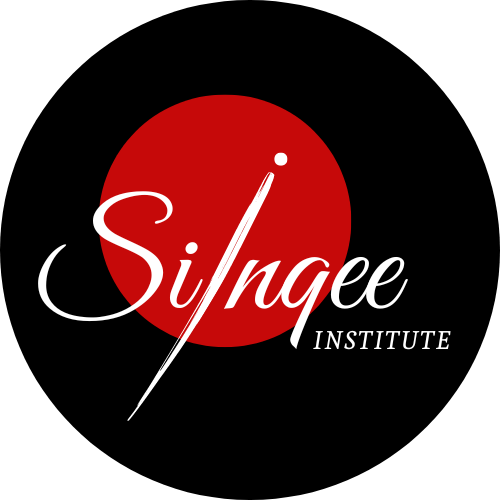Addooyyee Sisterhood
Invitation to Addooyyee Sisterhood
Background
The Siinqee Institute (SI) has received requests from communities to create space for reclaiming and reframing Addooyyee Sisterhood for younger generations of diaspora Oromo women and girls. This is particularly important for those who were born and raised in the diaspora away from the social and cultural resources of their homeland. Upholding Siinqee, the institution of married women, we exclude Addooyyee, the institution of unmarried women and girls. We appreciate this community request for the opportunity it opens for us to close this gap in knowledge production.
Indeed, creating such a space forms the core of our SI vision, mission, values, and objectives. Nothing breaks our collective heart more than hearing younger Oromos express feelings of disconnection from ancestral heritage and a deep sense of cultural emptiness. Their sadness at their felt lack of culture to share with their peers saddens us deeply because they do have a rich embodied culture, but they are alienated from it. Such diasporic alienation affects both female and male young Oromos. This alienation due to the rupture from the homeland is created and sustained by the tangled webs of patriarchy, racism, colonialism, and capitalism.
We commit to addressing this huge knowledge gap by engaging it wholistically and relationally. Our strategy is to break it into smaller meaningful projects and work through them from the inside out by focusing on them one at a time. This means that we start with gender relations that alienates girls within Oromo culture and ripple outwards to the alienation of ethnic, class, colonial, and racial exclusion that affects both male and female young Oromos.
Therefore, our first pilot project will focus on young women and girls because of the political and cultural repression of women’s knowledges and ritual practices. We believe that reclaiming and reframing women’s knowledges and ritual practices for our global context will empower young females enough to be able to engage the entangled larger common issues with their male peers. Ultimately, we will create spaces of co-learning and unlearning with both females and males.
Gender is a relational process that we need to address relationally for the praxes of gender justice. And this requires a deeper critical understanding of how girls become women and boys become men. What are their rites of passage at different phases of their life and how do these rites position them unequally within their communities and in the broader society? What kind of women’s knowledges and rites are repressed and what kinds are promoted? And how can we reclaim these repressed rich cultural practices and reframe them in ways that redresses gender gaps? This is what the call for Addooyyee Sisterhood seeks to address.
The Call for Addooyyee Sisterhood
In the deeply ingrained Oromo culture, gender inequality starts from birth where the ululation and celebration favours boys. This inequality continues throughout the life cycle where boys pass through various rites of passage progressively grooming them for leadership and authority. For girls the major rite of passage is their nuptial moment where they are groomed for marriage when they enter the Siinqee institution to become wives and mothers.
The Siinqee Institution protects the married women, but girls must be protected within their Addooyyee institution until they enter Siinqee through marriage and wedding. However, girls do not idly sit and wait for their wedding. They have their own rich Addooyyee practices of solidarity, resistance, and resilience. They practice incredibly rich rituals of mutual empathy, mutual support, mutual caring and nurturing, not just with each other but also with the natural environment, indeed with Mother Earth and her resources.
However, the richness and diversity of these knowledges and practices of power and freedom within institutional Addooyyee girlhood are repressed not to overshadow the institution of marriage and the submission of women therein. As rites of passage from girlhood to womanhood, weddings are extremely dramatized and romanticized to hide the imminent suffering, disempowerment, and bondage of the free-spirited power girl. Without minimizing the importance of weddings as rites of passage, we will still critically engage them to reclaim the empowering aspects of the rituals.
In our pilot project of Addooyyee Sisterhood, we will reclaim the richness of these repressed knowledges and practices of Addooyyee to empower young women and girls. We explore the core values and principles of relationality, solidarity, equity, and justice and what they meant in the Addooyyee practices and how they can be reframed to highlight the possibilities and pathways of gender justice in the diaspora. We will co-learn and unlearn the various rituals, songs and dances, and the values they uphold. And we will reframe them for our global context together.
If any of these activities entice you and you are interested in participating in this project, please give us a shout and we will be delighted to welcome you with warm open arms.
If you join us, we will spend four weekly sessions together to co-learn and unlearn these rituals, songs, dances, and practices. We will reframe what we consider important for our context and selectively embrace them. We practice what we embrace for four weeks until we are well versed to share them with our communities. These weeks of co-learning and unlearning is parallel to the seclusion of rites of passage preparing you to the next phase of your life. The four weekly activities will culminate in a community event where we all celebrate your coming out of seclusion. That event will be on August 15, 2024.
One thing is very important. Your equal participation and co-learning and unlearning with us is extremely crucial. This co-learning space is where you will critically engage the rituals with us and make it your own for your own unique context.
Any question, feedback, or concern, please contact us at (301-310-8277) and we’d be delighted to clarify the process and integrate your feedback. We look forward to hearing from you.
SIiinqee Institute


